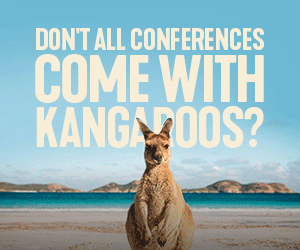IBRO 2019: Legacy and Impact for Daegu and South Korea

The 10th IBRO World Congress in Daegu, South Korea from 21-25 September 2019, hosted by the Korea Brain Research Institute (KBRI) and the Korean Society of Brain and Neural Science (KSBNS), represented the best of what is being done in neuroscience globally, as well as leaving a deep mark on the scientific and academic communities in Daegu.
In 1998, the Korean government enacted the ‘‘Brain Research Promotion Act’’ to promote the importance of brain science and to facilitate the industrialisation of developed technologies. Neuroscience research became one of the nation’s priorities. In addition to the Daegu Gyeonghuk Institute of Science and Technology, the main Korean universities and institutes that deal with neuroscience and behavior are Seoul National University, Korea University, Yonsei University, Korea Brain Research Institute (based in Daegu), and the Korea Institute of Science and Technology. Indeed, today Korea is regarded among top countries to study neuroscience.
Subsequently in 2016, a flagship programme called the “Korean Brain Initiative” (KBI) was launched. Local, national, and global collaborative networks became very important strategies to achieve KBI’s vision.
“Daegu as the host city of the 2019 World Congress of Neuroscience (IBRO 2019) was a turning point for promoting Korea’s neuroscience research capabilities and strengthening international cooperation,” said Professor Moon Che-il from Daegu Gyeonghuk Institute Science and Technology (DGIST).
IBRO 2019 was the most successful Congress yet, with 4,385 delegates, 125 exhibitors and the best of global neuroscience featured in 11 invited lectures, 40 symposia, 4 special programmes, 4 poster sessions with a total of 1,550 posters, 2 workshops, 19 socials and 6 satellite events. The International Brain Bee World Competition also took place. The biennial Congress of the Federation of Asian-Oceanian Neuroscience Societies (FAONS), the Global Neuroethics Summit, the International Brain Initiative Coordinating Body Meeting, the launch of the China-Japan-Korea (CJK) Consortium and the first everhigh-level forum on the Neuroscience of Learning between Ministers of Education and neuroscientists organized by IBRO and IBE-UNESCO made this Congress a truly special, milestone event.

When the congress was over and the last delegate had departed Korean shores, it was apparent that in addition to those quantifiable congress outcomes, IBRO 2019 was the perfect catalyst to drive Korea’s ambitions to extend its reach as a global brain research leader across the wide range of disciplines, national borders and policy landscapes. IBRO 2019 also firmly positioned Daegu as a leading city for brain research. The Korea Brain Research Institute (KBRI) secured a budget of KRW13 billion for its Brain Map Establishment and Convergence Challenge Project aimed at developing core technology which will change the paradigm of brain research. A legacy impact from the congress included the addition of the Phase II research wing at the KBRI which prioritised research applications and commercialisation.
In 2019, Sung-Jin Jeong from KBRI was elected as secretary general of IBRO, reflecting the high regard and respect given to Korea’s leadership in this field. Dr. Jeong, who is Lab Head of KBRI, reflected on how hosting IBRO 2019 catapulted transformation for Korea and Daegu. “It completely changed how international neuroscientists saw Korea and Daegu. We now have enough global recognition and cooperative relationships to join the ranks of advanced countries. This experience gave Korea and Daegu a foundation for building a global network and becoming a global center for brain research.”
Mr Sung-tae Kim, Director General of the Daegu Convention & Visitors Bureau added: “Hosting IBRO 2019 gave Daegu the profile and endorsement as a hub of excellence which is capable of hosting high quality events. It was the first in a succession of business events in the neuroscience sector that the city successfully bid and won. Having this congress under our belt is one of our definitive competitive factors because we went on to secure the 2023 Federation of the Asian and Oceanian Physiological Societies (FAOPS) Congress (estimated 1,000 pax) and the 2026 World Congress for Neuro Rehabilitation (estimated 3,000 pax).
There’s more... apart from sector and professional growth, the legacy of IBRO 2019 also touched public welfare and health care.
According to an article in The Korea Herald, Statistics Korea reported that the graying of Korea will accelerate and by 2050, the elderly could account for 43.9 percent of the country’s population. This fast-aging population, coupled with low birth rates, can become a burden on the nation's finances as the cost of health and welfare services for senior citizens increase. Investments in brain diseases which need high social requirements such as depression, addiction and autism need to be carried out. The nation’s responsibility for dementia care is a priority, with the government aiming to slow the outbreak of dementia by five years and reduce the growth of dementia patients by 50 percent after 2030.
As joint-hosts of IBRO 2019, KBRI and the Korean Society for Brain and Neural Sciences, put in great effort to nurture future scientists through training programmes for promising young scholars and the International Brain Bee, the neuroscience Olympiad for teenagers. “The achievement of young Korean researchers, their engagement and outreach efforts, and their global connections driven by IBRO 2019, will contribute tremendously to serve Korea’s dedication and care of its elderly society. With the collective expertise of our veterans and leaders, and the energy and innovation from our youth, Korea will continue to ride on the transformative legacies of IBRO 2019 long after the congress is over,” Mr Kim concluded. “It is truly one of Daegu’s legacy events.”

Other Articles
About Us
Supported by the Union of International Associations (UIA), the International Association of Professional Congress Organisers (IAPCO) and the Interel Group, the global public affairs and association management consultancy, Headquarters Magazines serve the needs of international associations organising worldwide congresses.















